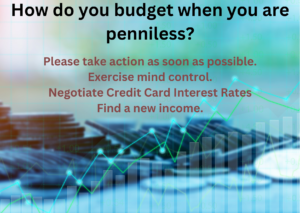*Essential tips to read before commence using your budget
It helps you fill in the free budget planner spreadsheet.
 1. Collect all bank statements, household bills and receipts
1. Collect all bank statements, household bills and receipts
Refrain from guessing or estimating. A budget’s success relies on exact income and outgoings, and the only way you can be 100% sure is by getting all your bank statements and household bills in front of you in black and white. Also, while getting an idea of monthly spending is excellent, I recommend at least three months’ worth of bills and receipts to keep the check of all your quarterly expenses, such as your TV license or water bills.
2. Decide what your budget is for
It’s essential to be consistent when budgeting. First, decide who you’re filling it out for —is it just for you, or is it for your partner or family, too? Finances often can’t be separated, so you should sit down and do it together.
3. Be as accurate as possible with your figures
It’s tempting to try to fool yourself by underestimating your expenditure. This is a Money-saving sin. and you will be punished. Try to be accurate, and if you’re unsure, guess larger, not smaller – that way, you’ll have cash left over and not be short.
Some types of spending overlap into different groups, so be careful not to count expenditures twice. For example, if you’ve included your car insurance in the motoring section, don’t include it again under insurance.
4. Distinguish between credit card ‘debt’ and ‘spending’
The credit card section allows you to enter how to repay your existing credit card debts. Please distinguish this from spending; use your credit card and pay it off immediately.
Here is an example to explain that.
If you spend $600 on food monthly, pay that with your credit card and make the payment in full. Then, when you enter the budget item, you must enter that in the food category and not in the credit card column.
If you contribute to pensions by cheque or receive a monthly payment from your bank account, it should be included in the payments side.
However, if your pension comes straight from your salary as a payroll payment, keep it private. When you fill in the income section, you should fill in the net amount of pay you receive after all deductions.
 6. Don’t forget to include ‘one-off’ spends
6. Don’t forget to include ‘one-off’ spends
It might be a holiday, car, or special birthday treat; we all have one-off spending that can affect our budget planning. The money-saving way of accounting for these is to apportion the annual cost into monthly amounts. So let’s say your new car costs £2,000—over a year, that’s £166.66 per month. So you will add £167 under “new car” each month.
Another top tip is to remember to subtract any regular spending when you include one-offs, such as holidays. For example, say you usually spend £100 per week on food shopping and £30 on petrol. If you’re abroad for the week, you won’t pay this, so make sure your budget reflects this.
7. Remember the emergency bills that you must pay.
If you are trying to budget at the beginning of the month, some urgent expenses might suddenly come up, so go back to your budget and add those expenses.
It is essential to check your budget regularly so that you will not miss any unexpected income or expenses.
